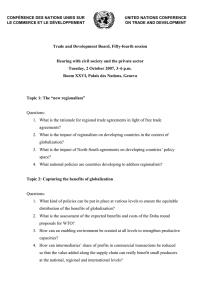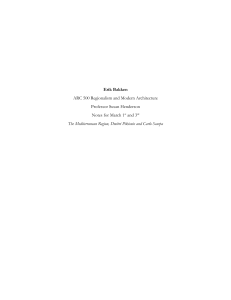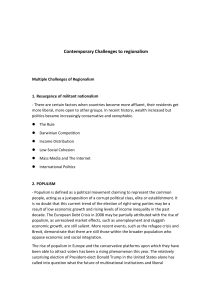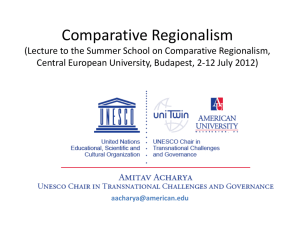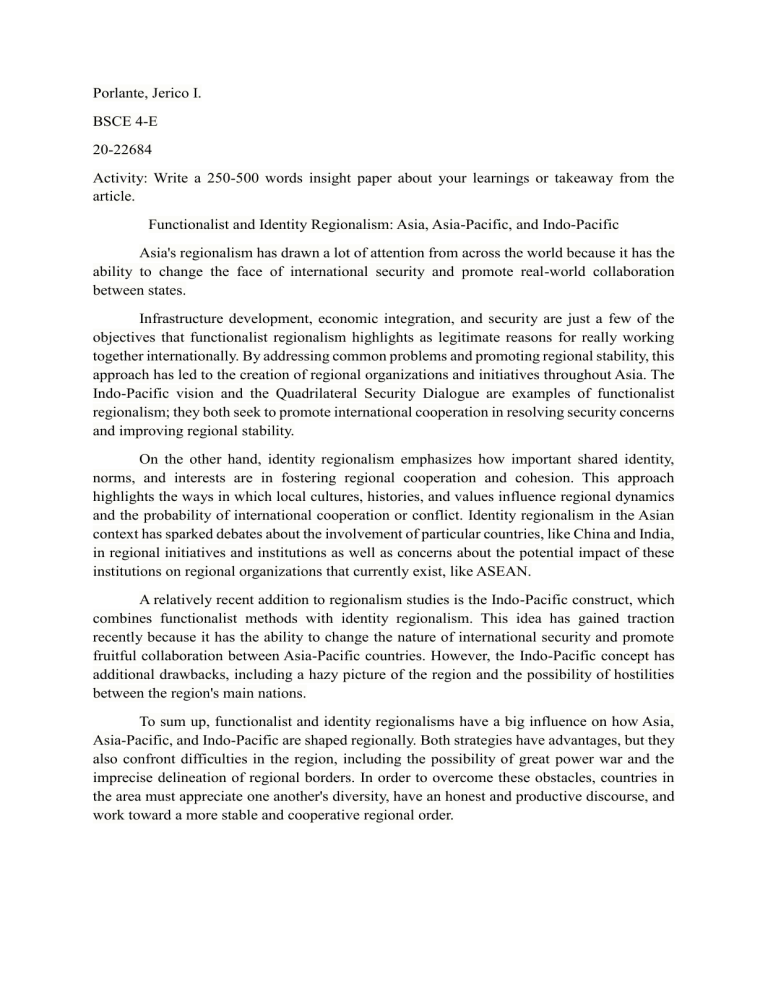
Porlante, Jerico I. BSCE 4-E 20-22684 Activity: Write a 250-500 words insight paper about your learnings or takeaway from the article. Functionalist and Identity Regionalism: Asia, Asia-Pacific, and Indo-Pacific Asia's regionalism has drawn a lot of attention from across the world because it has the ability to change the face of international security and promote real-world collaboration between states. Infrastructure development, economic integration, and security are just a few of the objectives that functionalist regionalism highlights as legitimate reasons for really working together internationally. By addressing common problems and promoting regional stability, this approach has led to the creation of regional organizations and initiatives throughout Asia. The Indo-Pacific vision and the Quadrilateral Security Dialogue are examples of functionalist regionalism; they both seek to promote international cooperation in resolving security concerns and improving regional stability. On the other hand, identity regionalism emphasizes how important shared identity, norms, and interests are in fostering regional cooperation and cohesion. This approach highlights the ways in which local cultures, histories, and values influence regional dynamics and the probability of international cooperation or conflict. Identity regionalism in the Asian context has sparked debates about the involvement of particular countries, like China and India, in regional initiatives and institutions as well as concerns about the potential impact of these institutions on regional organizations that currently exist, like ASEAN. A relatively recent addition to regionalism studies is the Indo-Pacific construct, which combines functionalist methods with identity regionalism. This idea has gained traction recently because it has the ability to change the nature of international security and promote fruitful collaboration between Asia-Pacific countries. However, the Indo-Pacific concept has additional drawbacks, including a hazy picture of the region and the possibility of hostilities between the region's main nations. To sum up, functionalist and identity regionalisms have a big influence on how Asia, Asia-Pacific, and Indo-Pacific are shaped regionally. Both strategies have advantages, but they also confront difficulties in the region, including the possibility of great power war and the imprecise delineation of regional borders. In order to overcome these obstacles, countries in the area must appreciate one another's diversity, have an honest and productive discourse, and work toward a more stable and cooperative regional order.


